
The twentieth year in the life of an informal collective like SAHMAT seems a good point in our journey to take stock of the two decades that have shaped the images, words and music you see within. Artists and intellectuals, writers and poets, musicians and dancers, fimmakers and theatre workers have had an extremely profound impact on the making of India as a modern nation. The last two decades have been especially charged with increasingly rapid social upheavals. Communal politics reared its ugly head, globalising forces of the market economy attempted to overthrow the socialist structure of the state. The destruction of the Babri Masjid was the biggest shock to the nation after independence. The Gujarat pogroms were a warning signal that we too could slip into the kinds of fascism experienced by many parts of the world. While sections of the corporate business world flourished, poverty increased and the scale of farmer suicides showed the ugly face of desperation confronting much of rural India. Culture became a battlefield and history was being re-written to justify and support contemporary oppressions. The media environment too has changed dramatically through these two decades, with a huge expansion in television, the growth of the internet and the proliferation of mobile telephony.
The journey of SAHMAT has paralleled these historical upheavals, and SAHMAT has been a platform for the creative and intellectual community to intervene in these political and social debates through their own practices. This exhibit maps that creative history and is a record of the voice of resistance that has been raised over twenty years.

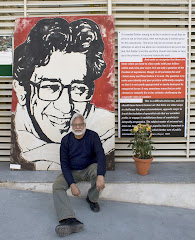
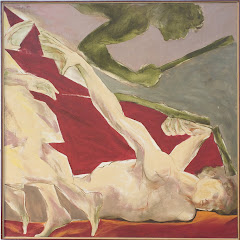


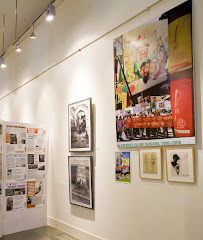



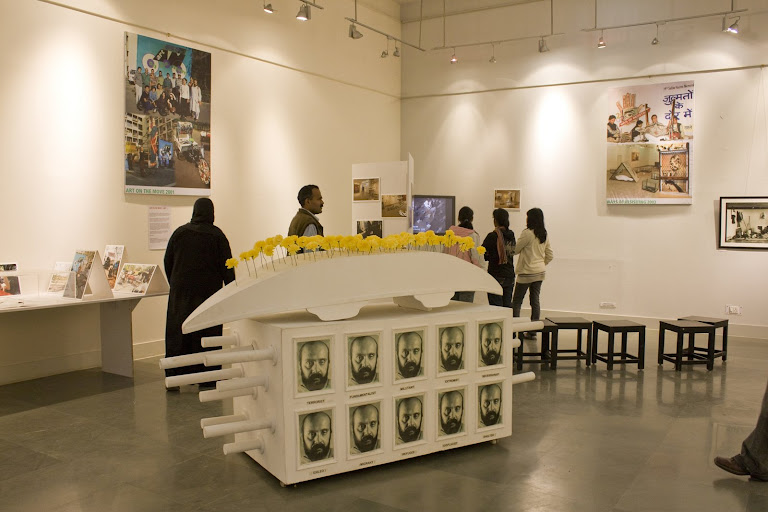

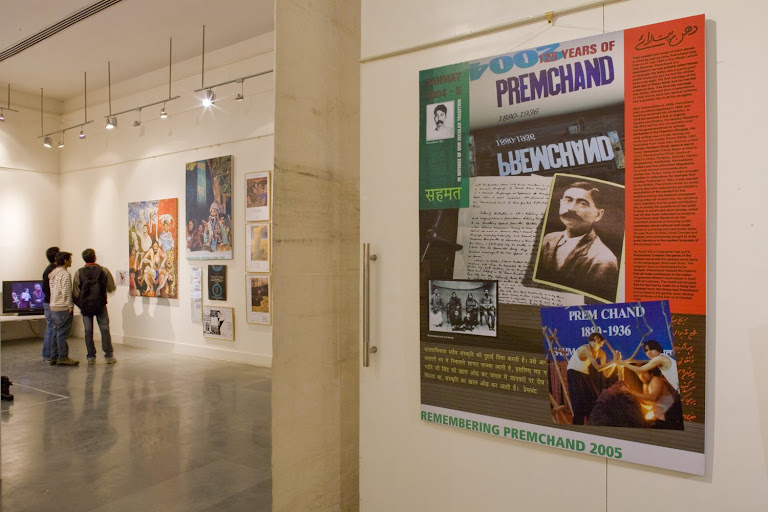


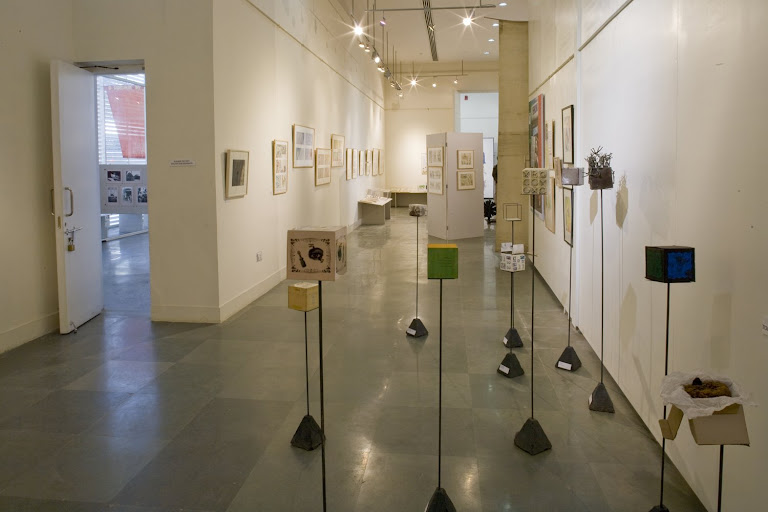
I really wished I had been in Delhi at the time of the display of this exhibition. it would have been really interesting to see it and follow the work of SAHMAT. I have a smaller artist group in Sweden called Meteor and we make similar projects in the public space, especially in the area where we live and work, that is a social ghetto of people who are unemployed, immigrants,socal outcasts.
ReplyDeleteTamara